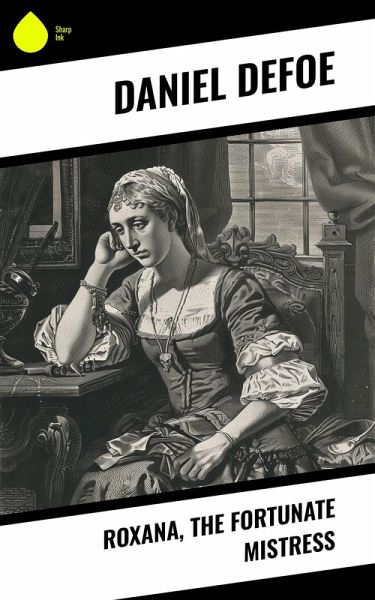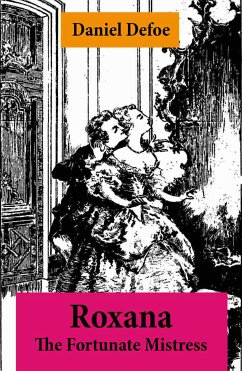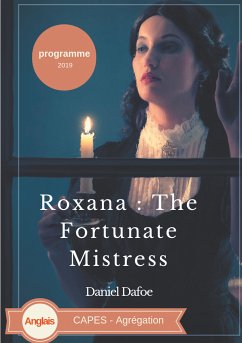
Roxana, the Fortunate Mistress (eBook, ePUB)
Versandkostenfrei!
Sofort per Download lieferbar
2,13 €
inkl. MwSt.
Weitere Ausgaben:

PAYBACK Punkte
0 °P sammeln!
In "Roxana, the Fortunate Mistress," Daniel Defoe crafts a compelling narrative that explores the life of a woman navigating the turbulent waters of 17th-century society. This novel, written in prose imbued with vivid details and psychological depth, challenges contemporary notions of virtue and morality. Defoe's exploration of themes such as gender, power, and economic independence reflects the burgeoning individualism of the Enlightenment, encapsulating the struggles and triumphs of a protagonist whose fortune is both a blessing and a curse. Roxana's journey unveils the complexities of femal...
In "Roxana, the Fortunate Mistress," Daniel Defoe crafts a compelling narrative that explores the life of a woman navigating the turbulent waters of 17th-century society. This novel, written in prose imbued with vivid details and psychological depth, challenges contemporary notions of virtue and morality. Defoe's exploration of themes such as gender, power, and economic independence reflects the burgeoning individualism of the Enlightenment, encapsulating the struggles and triumphs of a protagonist whose fortune is both a blessing and a curse. Roxana's journey unveils the complexities of female agency within a patriarchal framework, as she oscillates between manipulation and empowerment in her quest for autonomy. Daniel Defoe, a pioneering figure in English literature, was often influenced by his experiences in trade and his encounters with the socio-political dynamics of his time. His background in commerce and his own brushes with financial instability infused "Roxana" with authenticity and a keen awareness of the precariousness of fortune. Defoe's firsthand understanding of the harsh realities faced by women further informed the multifaceted character of Roxana, making her a reflection of the author's broader societal concerns. "Roxana, the Fortunate Mistress" is an essential read for those interested in the intersections of gender and economics in literature. Defoe's incisive commentary on the condition of women in a rapidly changing world resonates powerfully today, making this text relevant not only as a work of historical fiction but also as a profound exploration of personal sovereignty. Readers will find themselves enthralled by Roxana's bold and often contradictory choices, inviting reflection on their own definitions of success and freedom.
Dieser Download kann aus rechtlichen Gründen nur mit Rechnungsadresse in A, B, BG, CY, CZ, D, DK, EW, E, FIN, F, GR, HR, H, IRL, I, LT, L, LR, M, NL, PL, P, R, S, SLO, SK ausgeliefert werden.












